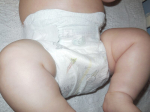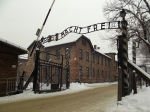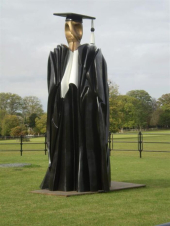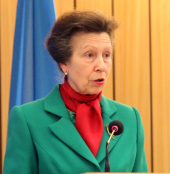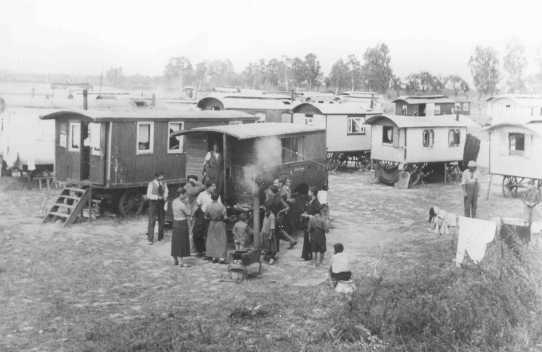
Krystyna Gil was told by her Roma grandmother to "never forget."
Though she was just a child during World War II, when the Nazis began systematically exterminating Roma in her native Poland, she has done just that.
"I was five years old at the time. I became an orphan. The love of a mother and a father, I do not know what that means," she told AFP.
"My grandmother told me 'never forget'. So even though many years have passed, I still remember."
Gil, now 76, was among more than a thousand who gathered on Saturday at the Auschwitz-Birkenau death camp in Poland to remember the genocide of Roma people carried out by the Nazis.
The ceremony was held on the 70th anniversary of one of the worst mass killings of Roma, when nearly 3,000, many of them children, were taken to the gas chambers at Auschwitz on the night of August 2, 1944.
"We join together here in pain, in memory of the victims," said Roman Kwiatkowski, head of the Association of Roma in Poland.
"Here we consolidate as a people, not only in relation to our past but also our future," he said at the ceremony, held on the occasion of the International Day of Remembrance for the Holocaust of the Roma.
Around a thousand also marched through Budapest to mark the date. Many of those killed at Auschwitz came from Hungary, where Roma make up between five and eight percent of the country's population of 10 million.
Together with her grandmother, Gil was the only member of her family to survive an anti-Roma pogrom in Szczurowa, a small village in south-eastern Poland, in 1943.
Many others did not survive.
Between 220,000 and 500,000 Roma were murdered by the Nazis -- a tragedy the community refers to as "Pharrajimos", which means destruction in their language.
Of that number, 21,000 met their end at Auschwitz-Birkenau after being forcibly deported from across Europe.
"It is a genocide that has been forgotten by Europeans, and that should change," said Thomas Schobesberger, a 23-year-old Austrian who had travelled from Vienna for the ceremony.
"I'm not Roma but I came here to commemorate the genocide of Roma during the Second World War and help make sure this page of history is better known."
Around one million Jews were exterminated at the infamous death camp, as well as 80,000 Poles. Six million Jews were murdered by the Nazis throughout the entire Holocaust -- the largest number of any group.
"Contrary to the genocide of the Jews, which is well known throughout the world, the suffering of Roma is unknown," Schobesberger told AFP.
Despite the many decades that have passed since the genocide, Roma still face discrimination today.
The European Union believes there are currently 10 to 12 million Roma, or Gypsies, throughout Europe, which makes them the largest minority on the continent.
In many countries, they face discrimination, extreme poverty and unequal access to health care and education.
"Roma are still too often the subject of intolerance," Kwiatkowski told AFP. "Comments denigrating the Roma are still too common."
Speaking on Friday, US Secretary of State John Kerry paid tribute to victims of the genocide, and also condemned the community's treatment.
"Racism against the Roma persists today," he said.
In a message read out at the event, Polish President Bronislaw Komorowski called for an end to all forms of discrimination.
"Our duty is to remember the victims of Pharrajimos, the genocide of Roma. But we should oppose all forms of intolerance towards Roma and other ethnic groups, all forms of racism and xenophobia," he wrote.
afp, photo by ushmm.org















